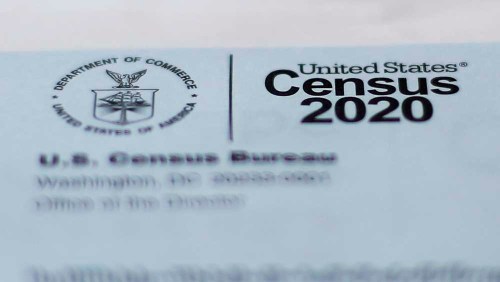2020 Census staff resume work in Oregon
Published 11:00 am Monday, May 18, 2020

- The U.S. Census Bureau needs more time to wrap up the once-a-decade count because of the coronavirus, opening the possibility of delays in drawing new legislative districts that could help determine what political party is in power, what laws pass or fail and whether communities of color get a voice in their states.
SALEM — The COVID-19 pandemic delayed the U.S. Census Bureau’s ability to hand-deliver materials and make sure everyone is counted in the 2020 census, the official count of every person in the United States done every decade.
Most people already received an invitation in the mail to complete the census. But 27,229 households in Oregon do not receive mail at their addresses, and the Census Bureau is required to deliver the invitations.
Trending
“We need to tie a census count to a physical address. We cannot tie it to a P.O. box,” said Jeff Enos, U.S. Census Bureau deputy regional director of the Los Angeles Region, which oversees Oregon. “We have to physically deliver census materials in these areas that do not receive home mail delivery.”
Census Bureau staff resumed work this week to drop off invitations at doorsteps across Oregon. It was the first time staff went door-to-door in Oregon since all field work was suspended March 18 due to the coronavirus.
Staff wore face masks and gloves as they dropped the materials at doorsteps, Enos said. They avoided interacting with people at each home.
“We want to minimize that to protect the health and safety of our employees,” Enos said.
So far, about 62% of people in Oregon have responded to the 2020 census. Umatilla County lags behind the rest of the state, with just 47.9% of people responding. Morrow County isn’t faring much better with only a 37.1% response rate. In 2010, Umatilla County had a 66.9% response rate, while Morrow County had a 43.9% response rate.
Originally, people had until July 31 to respond. But the deadline is extended to Oct. 31 because of the virus. Those who do not respond by then will be visited by Census Bureau staff in August.
Trending
“We want to encourage people to fill out their forms sooner than later,” Enos said.
The final census tally will be completed by April 2021.
Having everyone counted in the census is critical because the data is used to decide the amount of federal funding each state receives, Enos said.
In 2016, Oregon received $13.5 billion in federal funding, which accounts for about $3,200 per resident, according to national data.
The 2020 census could also give Oregon a sixth seat in the U.S. House.
“The census is extremely important,” Enos said. “It determines our ability to be represented in all levels of government from the House of Representatives in Washington, D.C., to the state house in Salem as well as local jurisdictions.”
— The East Oregonian contributed to this report.









